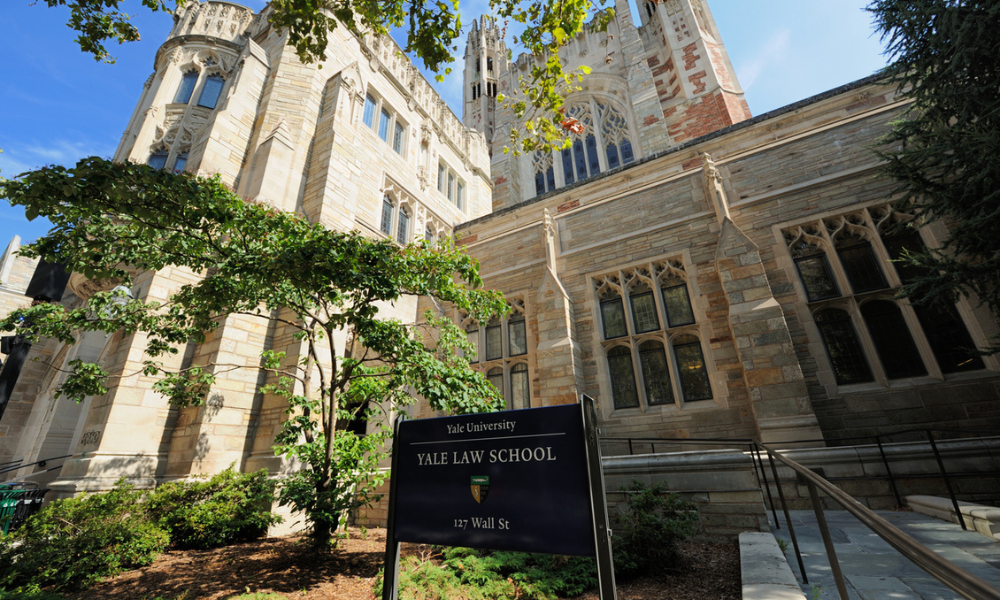
About 88 percent of students considered culture extremely important in their decision-making

Yale Law Women+ (YLW+) has published its nineteenth annual Top Firms Report, revealing that culture is the most critical factor for Yale Law School students when deciding which law firm offer to accept.
The report highlighted the continued efforts and challenges in promoting diversity, equity, and inclusion (DEI) within the legal profession. It underscored the progress made by women and gender minorities over the past century while identifying areas for further improvement.
According to the report, 88 percent of surveyed students considered culture extremely or very important in their decision-making process. This emphasis on culture significantly surpasses other factors such as compensation and advancement opportunities, which were both deemed extremely or very important by 56 percent of students.
Other considerations like prestige (49 percent), gender diversity (44 percent), racial diversity (42 percent), family life policies (28 percent), and leave policies (26 percent) also ranked lower.
YLW+, an organization dedicated to advancing the status of women and traditionally underrepresented gender identities at Yale Law School and in the legal profession, defines culture as “what makes attorneys enthusiastic about returning to work each day.”
The report identified Kramer Levin Naftalis & Frankel as the top firm for culture. The report states that a positive firm culture makes attorneys feel welcomed and valued team members without having to conceal aspects of their identity and personal expression.
The 2024 Top Firms Report is based on data from three surveys: a survey of Vault Law 100 firms about their diversity, equity, and inclusion practices, which had 32 responses; a survey of Yale Law students interested in working at firms, with 87 responses; and a survey of Yale Law Women+ alumni who have worked at firms, with 47 responses. The surveys were not restricted by gender.
Rather than listing the top 10 firms, YLW+ recognized firms in five categories based on firm survey responses and student preferences. The top firms in each category are:
Kramer Levin Naftalis & Frankel for culture, with honorable mentions for Holland & Knight and K&L Gates. The report highlighted Kramer Levin's support for diverse attorneys, offering a range of fertility-related benefits and unconditionally sponsoring green cards.
Jenner & Block for advancement, with honourable mentions for Pillsbury Winthrop Shaw Pittman and K&L Gates. Jenner & Block is noted for promoting diverse talent and supporting junior associates through a comprehensive feedback system.
Sheppard, Mullin, Richter & Hampton for agency and flexibility, with an honourable mention for Orrick, Herrington & Sutcliffe. Sheppard Mullin is praised for its inclusive leave policies and flexible work options.
Ropes & Gray for compensation, with honourable mentions for Kramer Levin Naftalis & Frankel and Orrick, Herrington & Sutcliffe. Ropes & Gray’s lockstep compensation model and generous pro bono and diversity initiative policies were highlighted.
Orrick, Herrington & Sutcliffe for diversity, with honourable mentions for Latham & Watkins and Ropes & Gray. Orrick is recognized for its high percentages of equity partners who are women, gender non-conforming, or people of colour and for its comprehensive support through affinity groups.
The report also noted the impact of global events, such as the conflict in Israel and Palestine, which brought issues of anti-Semitism and anti-Muslim racism to the forefront. These events sparked debates within law firms regarding the adequacy of their responses to such incidents. Additionally, nationwide attacks on DEI initiatives have placed advocates of diversity on the defensive.
Despite these challenges, the report revealed some positive developments. In 2024, for the first time, women constituted over fifty percent of all associates in law firms. However, the representation of associates of colour remains at thirty per cent, and the percentage of summer associates of colour has declined for the first time since 2017. At the partnership level, less than thirty percent of partners are women, with women of color making up less than five percent.
YLW+ acknowledged the importance of engaging with existing DEI efforts and self-assessment. The organization extends gratitude to the firms that participated in the survey and hopes the report's findings will be valuable in advancing DEI within the legal profession.